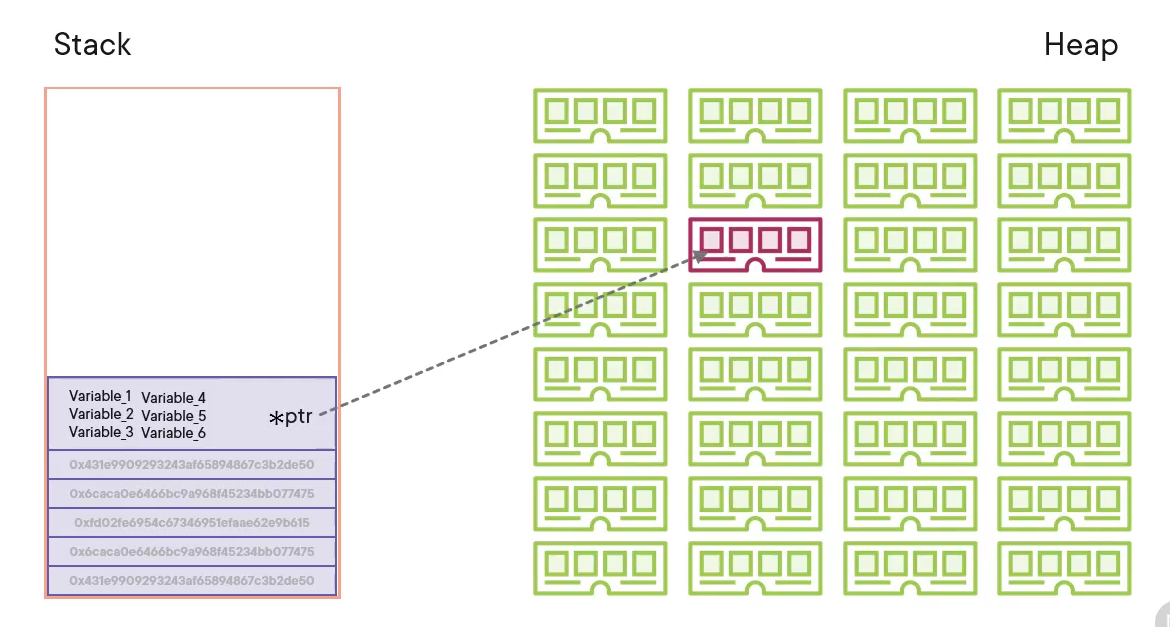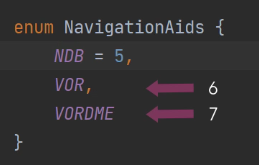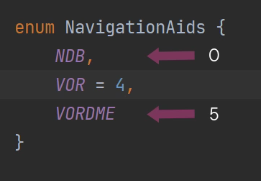Rust Fundamentals - pluralsight
Link: Rust Fundamentals - pluralsight
Intro
Installation instructions from https://rustup.rs
- Install IntelliJ
- Install Rust plugin
- I also installed IdeaVim
Stack vs. Heap
- Stack: LIFO

Data Types
-
Numbers vs. Text Data
- Numbers: can do arithmetic (while text don't)
-
Scalar vs. Compound
- Scalar: single value
- Compound: multiple values
-
Scalar data types:
- numbers
- characters
- booleans
-
Compound data types
- arrays
- tuples
-
Strings
Arrays and Tuples are very fast at runtime, but are fixed size. Later we'll see we'll the concept of Collections, which allows us to have a dynamic size.
// declaring an array
// explicit type
let location: [f32;2] = [0.0, 0.1];
Strings
Strings are complex in Rust as compared to many other languages. This is a trade off that Rust has made to support its core principals:
- Speed
- Concurrency
- Memory Safety
In rust we have 2 types of strings
String |
&str (aka String Slice) |
|---|---|
| vector of u8 data | vector of u8 data |
| mutable | immutable |
| stored on the heap[1] | can be stored on the heap, stack or embedded in the compiled code |
Converting between the two string types:
fn main() {
// from &str to String
let name_slice = "Donald Mallard";
let name_string = person_name_slice.to_string();
// it could be:
// = "Donald Mallard".to_string();
// = String::from("Donald Mallard");
// from String to &str
let name_string = "Donald Mallard".to_string();
let name_slice1 = &name_string;
let name_slice2 = name_string.as_str();
}
Concatenating strings:
fn main() {
let duck = "Duck";
let airlines = "Airlines";
// concat() concatenates &str and returns a String
let airline_name = [duck, " ", airlines].concat();
// format!() does the same
let airline_name = format!("{} {}", duck, airlines);
}
We'll see this repeatedly: &strs being concatenated in a String.
concatenation will always have an immutable string slice appended to a mutable string.
fn main() {
let mut slogan = String::new();
slogan.push_str("We hit the ground");
slogan.push(' ');
slogan = slogan + "every time";
}
Variables
fn main() {
// explicitly saying data type
let explicit_type: i32 = 42;
let inferred_type = 3.14;
}
Casting Variable Data Types
fn main() {
let float: f32 = 17.2;
let unsigned_int: u8 = 5;
// use u8 as f32
let cast_u8 = unsigned_int as f32;
// int to char
let number: u8 = 65;
let letter = number as char;
// float to char is an ERROR
let number: f32 = 65.0;
let letter = number as char; // ERROR!
}
Shadowing:
Defining a variable with the same name as another variable that's already been declared is called shadowing.
fn main() {
let my_var = 123;
{
let my_var = 321; // shadowing my_var
println!("{}", my_var);
}
}
Operators
math
- typical
+ - * /operators %for the remainder- for power:
i32::pow(n, p)- an integer can only have an integer exponent
f32::powi(n, p)orf32::powf(n, p)powifor int exponent, andpowffor float exponent
logical
- equal:
1 == 1 - not equal:
1 != 2 - and:
true && true - or:
false || true
bitwise operators
- and:
& - or:
| - xor:
^ - left shift:
<< - right shift:
>>
Control Flow
if / else
A string can be compared as other data types:
if word == "Duck" {
println!("Quack!");
}
enum
enum NavigationAids {
NDB,
VOR,
VORDME,
}
fn main() {
println!("NDB:\t{}", NavigationAids::NDB as u8); // 0
println!("VOR:\t{}", NavigationAids::VOR as u8); // 1
println!("VORDME:\t{}", NavigationAids::VORDME as u8); // 2
}
If you change a value of a field in an enum, the following fields will have a next greater value.
Examples:


Option
Rust does not have a 'null' data type.
Option is an enumeration which has two values: Some and None.
fn main() {
let phrase = String::from("Duck Airlines");
let letter = phrase.chars().nth(15); // out of bound
let value = match letter {
Some(character) => character.to_string(),
None => String::from("No Value")
};
println!("{}", value);
}
match
Rust
matchoperator is similar toswitchstatement in other languages.
loop / while
loopis infinite loop (needsbreak)while- no secrets here
for
example
for index in 1..11 {
println!("{}", index);
}
Note about ranges
1..10- goes from 1 to 9 (the last value is exclusive)1..=10- goes from 1 to 10 (the equal sign makes last value inclusive)
The for is useful to loop through an Iterator.
For now, you can consider a
Traitas an interface.
trait Iterator {
type Item;
fn next(&mut self) -> Option<Self::Item>;
}
We can get an iterator from an array using the .iter() method, like here:
fn main() {
let duck_aircraft = [
"Boeing 737",
"Boeing 767",
"Boeing 787",
"Airbus 319",
"Airbus 320",
];
for aircracft in duck_aircraft.iter() {
println!("{}", aircraft);
}
}
Ownership and Borrowing
Keep these points in mind:
- Who owns the data?
- Passing by reference or by value
- Is it mutable?
Ownership and Borrowing only apply to data on the heap
Ownership
In Rust, there can be one and only one owner of data at a time, at any given memory location.
fn main() {
let original = String::from("original value");
println!("original: \t\"{}\"", original);
let next = original; // original hand over its value to next
println!("original: \t\"{}\"", original);
}

When we do let next = original, then original no longer exist.
This is the reason Rust code is both safe and fast. All analysis can be done at compile time rather than runtime.
Borrowing
Borrowing allows another variable to take temporary ownership of data without deallocating the original variable.
We can borrow a value using the & ampersand.
let next = &original;
There's more about borrowing in the video...
Functions
video talking about how to use functions with ownership & borrowing.
fn function_name(arg1: type, argN: type) -> return_type {
// body of the function
}
Passing arguments to a function:
- Pass by value
- pass the actual value
- value is on the stack
- Pass by reference
- pass a pointer to the value
- value is on the heap
fn main() {
let mut original = String::from("original value");
println!("main(): \t\"{}\"", original);
print_original(&original);
change_original(&mut original);
}
// remember String is on the heap,
// then you need to pass by reference (with '&')
fn print_original(original: &String) {
println!("print_original: \t\"{}\"", original);
}
fn change_original(original: &mut String) {
let next = original; // original no longer owns the memory
*next = String::from("next value");
println!("change_original: \t\"{}\"", next);
}
Closure
Closure is a function that doesn't have a name (aka anonymous function).
Closure with no arguments:
fn main() {
// two pipes defines a closure (anonymous function)
|| {
println!("Hey. This is the closure.");
}; // <-- don't forget the ';'
// this 👆 is actually useless, as we don't
// have a way to call that closure.
// -----
// assign a closure to a variable
let hello = || {
println!("Hello World!");
};
hello();
// prints "Hello World!"
// -----
// passing arguments to a closure
let hello_name = |name: String| {
println!("Hello {}!", name);
};
hellofrom("meleu";
// -----
// returning data from a closure
let hellof = |name: String| -> String {
format!("Hello {}", name)
};
let phrase = hellofrom("meleu";
println!("{}", phrase);
}
Error Handling
Recoverable vs. Unrecoverable Errors
Two options to handle errors:
- Handle the error
- Propagate the error
More resources
- SOLID: The First 5 Principles of Object Oriented Design
- The DRY Principle: Benefits and Costs with Examples
Data Structures and Traits
struct
struct Waypoint {
name: String,
latitude: f64,
longitude: f64,
}
fn main() {
let kcle = Waypoint {
name: "KCLE".to_string(),
latitude: 41.4075,
longitude: -81.851111,
};
let kslc = Waypoint {
// copy from the kcle, but overwrite
// the name
name: "KSLC".to_string(),
..kcle
}
}
impl
Object Oriented encapsulation: data and methods are contained within a class.
Rust Associated methods: methods are separate from the data that the methods use.
struct Waypoint {
name: String,
latitude: f64,
longitude: f64,
}
// this is the data
struct Segment {
start: Waypoint,
end: Waypoint,
}
// this is the implementation of the methods
impl Segment {
fn new(start: Waypoin, end: Waypoint) -> Self {
Self { start, end }
}
fn distance(&self) -> f32 {
// add logic to calculate the distance
// between 'start' and 'end'
}
}
fn main() {
// ...
let point1 = Waypoint {
// ...
}
let point2 = Waypoint {
// ...
}
// calling new from 'impl Segment'
let point1_2 = Segment::new(point1, point2);
// now 'point1_2' is an implementation of Segment
// and has access to its methods
let distance = point1_2.distance(); // note: no args
}
Traits
Traits define a shared behavior among structs.
Traits are analogous to interfaces in object-oriented languages.
struct Boeing {
required_crew: u8,
range: u16,
}
struct Airbus {
required_crew: u8,
range: u16
}
// trait acts like an interface
trait Flight {
fn is_legal(
&self,
required_crew: u8,
available_crew: u8,
range: u16,
distance: u16
) -> bool;
}
// implementation of the "interface" Flight
// for the Boeing struct
impl Flight for Boeing {
fn is_legal(
&self,
required_crew: u8,
available_crew: u8,
range: u16,
distance: u16
) -> bool {
// actual implementation of the method
// goes here...
}
}
// implementation of the "interface" Flight
// for the Airbus struct
impl Flight for Airbus {
fn is_legal(
&self,
required_crew: u8,
available_crew: u8,
range: u16,
distance: u16
) -> bool {
// actual implementation of the method
// goes here...
}
}
a String is stored on the heap because it can grow and shrink in size. The size is not constant so it cannot be stored on the stack. ↩︎